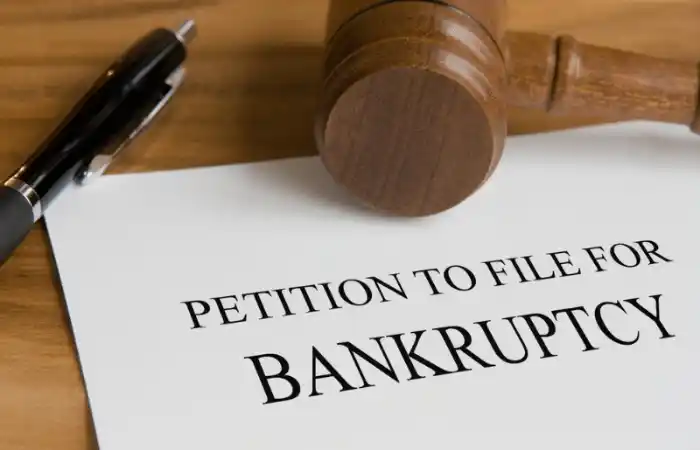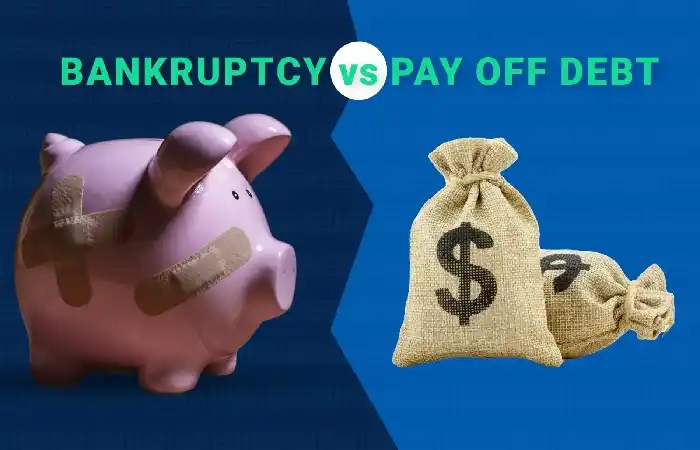 Bankruptcy Write for us: Bankruptcy filing is a legal course undertaken by the business to free itself from debt duties. Debts not paid to creditors in full are forgiven by the owners. Bankruptcy filing varies in different nations.
Bankruptcy Write for us: Bankruptcy filing is a legal course undertaken by the business to free itself from debt duties. Debts not paid to creditors in full are forgiven by the owners. Bankruptcy filing varies in different nations.
In India, if you file for impoverishment, it will not go unhappy well with your credit ranking, which means that it may be challenging for you to get a new loan if you plan to start again. However, it would save you from any economic worry.
Three central chapters follow in the United States – Chapters 7, 11, and 13. Let’s understand each of them in detail. A person or an organization files for Chapter 7 under the U.S. bankruptcy law to liquidate their assets to repay their debt duties. Filing Chapter 7 means all collection efforts from all creditors should stop immediately.
 Bankruptcy relieves you from insurmountable debt and allows you to start a new economy. It also gives you peace of mind through relief from persistent and offensive credit collection events.
Bankruptcy relieves you from insurmountable debt and allows you to start a new economy. It also gives you peace of mind through relief from persistent and offensive credit collection events.
Once you declare bankruptcy, you benefit from a reflex stay. It will directly notify your creditors of your status and bar them from writing you via email, USPS mail, or phone.
Your lawyer will explain how and when the reflex stay goes into effect, how your creditors will notify you, and what happens if your creditors continue to contact you. You may ask to attend a meeting of your creditors and answer inquiries about your debt load. Your advocate may also accompany you to this meeting.
You Can Discharge Debt Through Bankruptcy
When you file for bankruptcy protection, a release from the court will dismiss you of your duty to repay your creditors for certain debts. As noted, once your debt, your creditors cannot contact you or attempt to assemble the debt in any way. A burst of your debt is also lasting and final for all unsafe debt you include in your bankruptcy filing.
Your discharge timing will vary depending on the type of bankruptcy you filed. A Section 7 bankruptcy discharge order can take as slight as four months, while a Chapter 13 bankruptcy release can take three to five years.
If a lawyer in your bankruptcy filing represents you, you and your lawyer will accept a copy of your debt release order. Your lawyer will help you appreciate what happens if you declare bankruptcy, which debts by your bankruptcy filing, and those you might still be grateful to pay.
 Can I File for Bankruptcy on My Private?
Can I File for Bankruptcy on My Private?
You can folder for bankruptcy independently, but the process is long and complicated, and you could benefit from the direction and clarity a bankruptcy lawyer can provide. Even the U.S. Courts endorse working with an attorney to help you completely understand your choices, releases, bankruptcy benefits, and the complexities of the process.
How to Submit Your Articles
To Write to Us, you can email us at contact@thewhoblog.com
Why Write for The Who Blog – Bankruptcy Write for Us
Writing for Thewhoblog can give massive exposure to your website for customers looking for Bankruptcy. Thewhoblog presence is on Social media and will share your article with the Bankruptcy-related audience. You can reach out to Bankruptcy enthusiasts.
Search Related Terms to Bankruptcy Write for Us
- Bankruptcy
- Chapter 13 bankruptcy
- Bankruptcy lawyer
- Bankruptcy chapter 13
- 11 bankruptcy
- Bankruptcy lawyers near me
- Bankruptcy Attorney
- Bankruptcy attorney near me
- what is bankruptcy
- Bankruptcy chapter 11
- what happens when you file for bankruptcy
- How to file for Chapter 7 bankruptcy
- Bankruptcy definition
- Revlon files bankruptcy
Article Guidelines on Thewhoblog – Bankruptcy Guest Post
We at Thewhoblog welcome fresh and unique content related to Bankruptcy.
Thewhoblog allows a minimum of 500+ words related to Bankruptcy.
To publish article at Thewhoblog email us at Contact@thewhoblog.com
